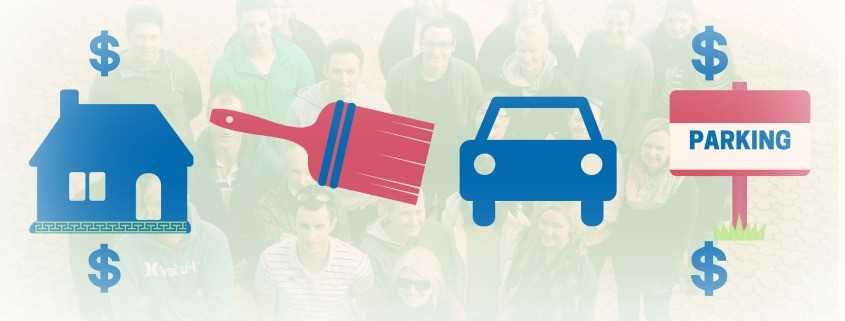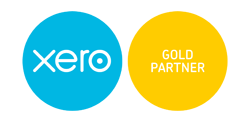Tax and the sharing economy
There are more and more sharing economy, or collaborative consumption, websites and apps hitting the market in Australia and they are making their way from the big cities into the Tasmanian market. With the holiday season upon us, short-term vacation rentals through apps like Airbnb and Stayz will be in full swing. And now that Uber has arrived in Hobart – just in time for the silly season – Tasmanians and our tourists are embracing the ride-sourcing phenomenon.
But before you decide to rent your house out for summer with Airbnb or earn some extra money driving for Uber, you need to consider the tax implications – you may need to pay GST and income tax on your earnings and you may be liable for CGT down the track.
What is the sharing economy?
The Australian Tax Office (ATO) says the sharing economy “connects buyers (users) and sellers (providers) through a facilitator who usually operates an app or a website.”
Not only do these “sharing economy” initiatives provide the opportunity to make (or save) some extra dollars, many of the sharing apps and websites contribute to sustainability through the sharing of resources (hence the term “collaborative consumption”).
Specifically, but not exclusively, the ATO says you are participating in the sharing economy if you are providing these popular services:
- Using a car to provide a taxi travel service for a fare (e.g. Uber)
- Providing personal services such as odd jobs, errands, deliveries, or more skilled services such as creative or professional services on an ad-hoc basis (e.g. AirTasker)
- Renting out or letting a room, house, unit or other property for short-term accommodation (e.g. Airbnb or Stayz)
- Renting out or letting a car parking space (e.g. Parkhound)
The definition includes a host of new goods and services in addition to those already mentioned: eBay, Gumtree, Clothing Exchange and MenuLog to name a few that are already operating in Tasmania.
Will you need to pay tax on your earnings?
In short: Most likely.
While these digital platforms make it easy for us to participate in the ever growing sharing network, it also makes it easier for the ATO to follow the money trail and make sure no one is avoiding declaring income. So don’t be tempted to try to avoid the tax man if you plan to make money through any of these apps or websites.
Income tax
The odd activity like selling a few items from the back of your wardrobe online won’t need to be declared in your income tax return but, where your activities amount to more than an occasional pastime or hobby, providing a service or selling goods for money most likely means you’re earning assessable income.
Keeping records is good practice regardless of how much you plan to earn:
- keep records of all income from your sharing economy activity and declare it in your tax return, and
- keep records of any expenses you incur related that activity and claim the allowable deductions (apportioned for private use).
If you’re not sure whether the ATO will deem your activities to be a business or hobby, speak to an adviser. You can read what the ATO thinks about it here: Are you in business?
GST
You may also need to get an ABN and register for and pay GST.
Even if you’re not registered as a business, if your annual turnover from providing goods and services in the sharing economy exceeds $75,000 you’ll need to register for GST. (However, see below regarding ride-share drivers — if you provide taxi travel services you need to be registered regardless of your turnover.)
If you do end up registering for GST, you need to:
- charge GST when you make a taxable supply (i.e. provide the goods or services)
- claim any input tax credits you are entitled to for related purchases, and
- lodge an activity statement and remit any net GST from your activities.
Providing ride-sharing services
(e.g. Uber)
The ATO maintains that if you are providing a taxi travel or ride-sharing service you are running a small business as a sole trader (unless you have made other formal arrangements for an alternative business structure), regardless of your income from providing the service.
Do Uber drivers need to register for GST?
Uber drivers (and any other ride-sharing service providers) are required to have an ABN and register for GST like normal taxi drivers – no matter what your yearly earnings are.
Income tax consequences of Uber-like services
You will need to declare all the income you earn, but you can also claim the expenses related to providing the ride-sharing services.
The ATO provides a great deal more detail about the tax obligations associated with providing ride-sharing services. If you are signing up to be an Uber driver now the service has hit Hobart, it is definitely worth a read!
Renting out a room, house or unit
(e.g. Airbnb and Stayz)
What income tax deductions can you claim?
You can claim deductions in the same way as if you had a rental property or holiday home. Common expenses include:
- fees or commission charged by the website/app facilitator
- interest on a loan for the property
- electricity, gas and council rates
- house insurance
- cleaning and maintenance costs
You can claim 100% of expenses that are purely related to renting out the property (e.g. fees paid to Airbnb). For all other expense the portion of the expense that can be claimed will depend on:
- the proportion of the year you rent out the property
- the portion of the property you have rented out (for example, a room or the whole house)
- whether you use the property, or part of it, for personal use when it is not rented out
The ATO provides an excellent example of claiming deductions when renting out part of your house or unit.
Do you need to register for GST?
You are not required to charge GST if you are renting out a room, house or unit, but you will also not be able to claim any GST included in the expenses you incur.
Will you be liable for capital gains tax (CGT) when you sell the property?
You may be liable for CGT when you sell your house or unit even if it is your main residence (which would usually be CGT exempt). This will be calculated on a proportional basis, i.e. based on the portion of the property rented out, and the length of time it was rented out. See an adviser for more information as the amount of tax that you pay will depend on a range of other factors, and there are circumstances where you may still be exempt from CGT.
Renting out a car space
(e.g. Parkhound)
A note about capital gains tax (CGT) on car spaces
As with renting out a room, house or unit, renting a car space may result in capital gains tax when you sell the property on which the car space is located. Talk to an adviser about the implications for your personal situation.
Some handy examples
The general rule of thumb is this: If you provide sharing economy services you’ll have a liability to pay tax as an enterprise.
Here are some helpful case studies from the ATO that explain some common circumstances.
EXAMPLE 1 – Renting out rooms in a house
Sue owns a house that contains two furnished bedrooms. She enters into an arrangement with a facilitator (e.g. Airbnb) to have the rooms separately advertised to guests who will pay a fee for being able to rent the rooms on a nightly or weekly basis. Sue provides linen but does not supply meals to the guests who have access to the kitchen to prepare their own meals.
Sue is not required to charge GST. Sue will also not be able to claim any GST included in expenses she incurs.
At the end of the year, Sue includes all the rental income in her income tax return. She also claims a deduction for the fees charged by the facilitator and for a proportion of her mortgage, electricity and other expenses relative to her renting activity.
If Sue sells the home she will also have some capital gains to account for as the home has been used partially for rental income purposes.
EXAMPLE 2 – Driving passengers for a fare
Anton sees an advertisement about how he can earn some extra money by transporting passengers in his car.
The service is operated by a third-party facilitator (e.g. Uber), which notifies Anton of the location of possible passengers and provides a platform through which passengers can request transportation from Anton to a destination of their choice.
Anton charges a commercial fare that is based on distance and time, and he (or the facilitator on his behalf) issues invoices to his customers.
The frequency of Anton’s arrangement varies from week to week. Most weeks, Anton transports between five and 15 passengers, but in some weeks he does not operate at all.
Anton is providing “taxi travel” and must be registered for GST from the very first time he takes a passenger.
While Anton needs to account for the GST charged on the full fare, he also gets to claim input tax credits for a proportion of the GST he pays on fuel and other expenses for his car.
Anton is thinking about buying a new car and he knows he will be able to claim back some of the GST he is charged by the dealer. He also knows that there are some GST adjustments he needs to make when he sells his existing car, which he has been using to provide taxi travel.
At the end of the financial year, Anton includes the income from his fares in his income tax return. He also claims a deduction for a proportion of his car expenses relative to its income-producing use.
What now?
Make sure you don’t get in trouble with the tax man:
- Don’t try to hide income from your activities!
- Keep records of your income and expenses, even if you think your income will be under the limits, so you can work our your tax obligations and allowable deductions if and when they arise.
Avoid getting landed with a surprise tax bill at the end of the year:
- Do your research on the tax implications of your activities before singing up to provide goods or services via a collaborative consumption website or app
- Talk to an adviser about whether you should enter the pay as you go instalment (PAYGI) system. This allows you to pay quarterly amounts towards any income tax you may need to pay on your sharing economy income. See our PAYG beginners guide for more on who this applies to and how these instalments work.
If you have been operating in the sharing economy, or you are thinking it might be for you, it would pay to get some professional tax advice sooner rather than later. Contact us to talk about your own situation so you can get the most out of these sharing economy opportunities.
(This article has been updated from the original, published 13 October 2015)













